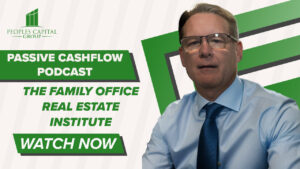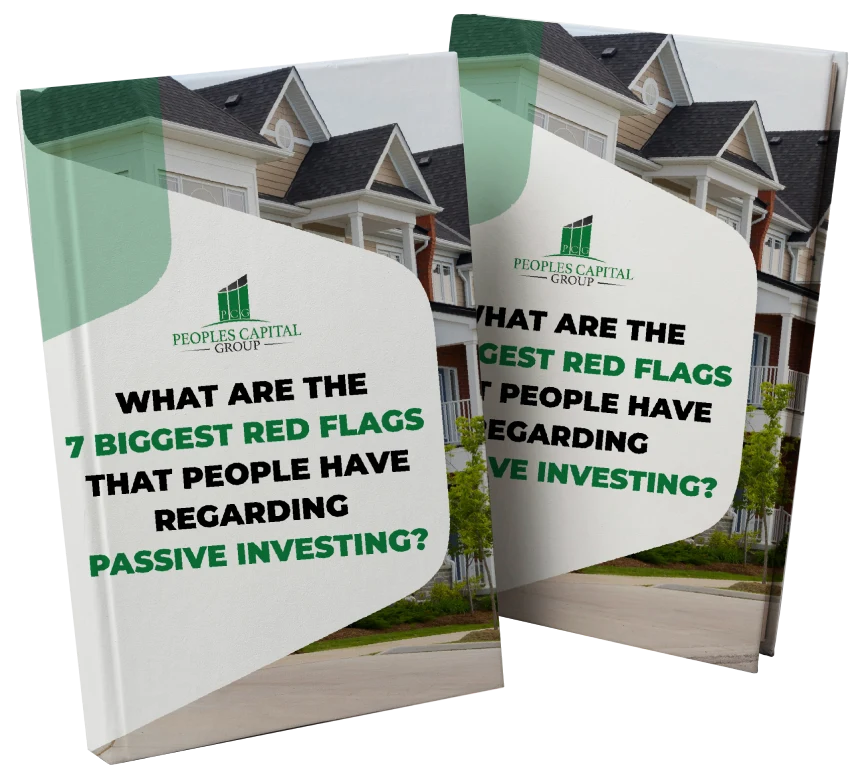
The secret of using investing as a powerhouse wealth-generating vehicle has been around for a long time. Among those seeking to take care of their financial independence or build prosperity for future generations, many are still looking for the keys to unlock the “golden gates” of investment.
It is no surprise to anybody that investment options available on the market today are innumerable. And sure as rain, the right investment strategy plays a critical role in achieving any investors’ desired outcomes. But with so many alternatives available, how does one begin to accumulate the financial independence others seem to achieve so easily? Where do you sign up?
In this article, we are going to give the low-down on how to become an investor and how to make smart investment decisions that will carry you to your financial goals. We will even look at a couple of good investing habits to get you started on the right foot! Let’s dive in.
Why Become an Investor?
Learning to invest is a skill that holds lifelong financial benefits. Rather than leaving your hard-earned money in the bank where it essentially loses value over time due to inflation, investing your funds can protect the overall value of your money and grow it at the same time!
While it may seem like a daunting task at first, nobody truly understands “how to invest” when they’re starting out. With diligent research and a solid investment plan, you can become a successful investor too!
Many investors jump into the game to either grow their capital or increase their revenue streams. Both can be achieved with the right strategy and are simple to navigate with a sound approach. So let’s jump in and look at the investor toolkit, so you can discover for yourself how to become an investor.
Articulate Your Goals

So you’ve decided to move your money from the safety of the bank vault into a wealth-generating machine that will bring financial rewards. But… Why?
The first and most important step to becoming an investor is understanding what you want to achieve by investing your money. Many investors enter the game to secure a stable place to live, work diligently towards their retirement plan, or save for their child’s college education.
Regardless of your aspirations, creating a set of measurable goals and devising a timeline will keep you on track to achieving them.
Your ideal outcomes will inform your investment strategy, serve as a benchmark to measure success, and may drive your decision-making as you gain experience and knowledge.
Determine Your Investment Strategy
Investments usually fall into one of three categories that dictate whether you’re taking a hands-on approach or you want to get cash flow without the hard work.
Once you understand what you aim to achieve by investing, you’ll have a better idea of which strategy will work best for you. Often, an individual’s ideal lifestyle objectives and current commitments influence which approach fits the picture best.
Active
Active investors actively buy and sell property in the hope of profiting from their venture or outperforming market benchmarks. Active real estate investments include property flipping, wholesaling to investors, and purchasing a rental property while managing it yourself.
This investment strategy is called active because it demands time and hands-on work. While the nature and scope of work involved can vary, it primarily focuses on reviewing hundreds of overpriced deals to find one good one, managing tenants, organizing repairs and refurbishments, and actively seeking buyers.
Partially Passive
When investing in a partially passive strategy, you still have some responsibilities to tend to, although not as many as active investors. Financial gain may come through long-term property appreciation or recurring cash flow streams.
Partially passive investors partner up with investors to distribute the workload based on skills, experience, and capital. Alternatively, they may purchase a professionally managed property and outsource the majority of the management duties to a third party.
Passive
Passive investment is a long-term holding strategy to build wealth over time without doing any work yourself. Many passive real estate investors combine their funds and collectively invest in a professionally managed commercial property that they wouldn’t be able to afford on their own.
This strategy works well for busy professionals who want to grow their wealth but don’t have the time or experience to manage properties themselves. Investors may choose to put their capital to work in a real estate investment trust, a real estate syndication or they may consider crowdfunding.
People’s Capital Group are professional general partners that crowdsource funds from passive investors. The business partners scour commercial real estate deals, get the property under contract at a discounted price, and manage the daily operations of the asset. Passive investors simply receive their quarterly or monthly returns. Additionally, investors benefit from diversification which reduces the risk involved since their money gets allocated across various real estate assets. If you want to grow your wealth in a low-risk investment without doing any of the work yourself, reach out to ,People’s Capital Group to learn how you can get started.

Get the Right Investing Resources
The best part about becoming an investor is that there’s no formal education required! Anybody can learn to invest with the right resources. There is no “one-size-fits-all” approach, which can make investing in financial markets less comfortable for those who need certainty.
The good news is that there are plenty of resources available online, so you don’t need to reinvent the wheel. Successful investors have created books, blogs, Youtube videos, and courses to teach you what worked well for them and what didn’t. Diligently researching through credible resources can save you eons of investment practice and fast-track your investment success.
Identify Investment Opportunities
Once you have defined your goals and decided which investment strategy will work best for you, start looking into which investment opportunities will serve your objectives. It’s helpful to keep your end goal in mind as you discover various investment channels.
Below, you’ll get an idea about how drastically the level of capital investment, risk, and work involved can vary from project to project. Choosing a method that suits your financial goals and lifestyle dreams will ensure a positive investing experience. Here are a few options you may consider.
Real Estate Investments
Real estate is one of the most reliable wealth-creating vehicles available. Investors can earn stable cash flow and returns while assets steadily appreciate over time. Investing in real estate offers great diversification benefits to any portfolio, and depending on your strategy, creates leverage to enter into larger and more profitable projects. Here’s how you can invest in real estate.
Buying a Rental Property
Investing in rental properties involves purchasing residential real estate and renting it out to tenants. Residential properties tend to appreciate steadily and offer additional income streams from rental yield.
This option works well over the mid to long term, but it usually requires a fair amount of upfront capital to cover the down payment. You may also need to secure financing from a financial institution to complete the purchase. During your investment term, be prepared to allocate time to management responsibilities, and invest capital into maintenance and repairs.
Property Flipping
Flipping property involves buying real estate and performing repairs and refurbishments before reselling it. It can be a great way to make money if you’re seeking an active real estate investment. Flipping requires a significant capital investment to cover purchase costs and renovations throughout the project term. It’s important to understand the risk involved and build your knowledge and skills before you begin.
You need to accurately project how much you can sell the property for, and how much it will cost you to fix. Additionally, be prepared for the possibility that the property may not sell right away and market values fluctuate over time so the future value may be hard to predict. If you’re prepared for these risks, flipping a property can be a great way to make money in the investment world.

Crowdsourcing
One of the best ways to start investing is by partnering with professional investors to contribute funds to commercial-grade investments. With crowdfunding, you can invest in a variety of different projects and receive monthly or quarterly dividends. The investment is considered low risk since this strategy encourages portfolio diversification.
It is more financially accessible than other options for investors who are just starting. When you invest with ,People’s Capital Group, you can begin with as little as $30k in the bank! Furthermore, commercial real estate investors benefit from critical tax advantages rather than losing returns to capital gains tax in the stock markets.
Financial Market Investments
Investing in financial markets usually requires opening a brokerage account and committing your capital to a project. Should you go down this road, it pays to spend some time researching and creating a plan for where and how you want to invest.
Review the rate of return for your investment capital, how long you plan to keep your funds in an account, and any participatory or withdrawal fees associated with your investment.
Stock Market
Stock investments represent the ownership of equity in a company or organization. The stock market has historically produced high returns and also carries high risk. Stock prices are well known to be volatile and tend to work better over the long term.
The best way to get started is by investing in stocks that you’re familiar with. This will help you understand how the stock market works and how different companies perform.
Mutual Funds
Mutual funds are professionally managed investment funds that combine money from multiple investors to purchase securities. A mutual fund is usually considered safer than investing in individual stocks. They hold a variety of company stocks within one investment, so they offer greater diversification benefits than a few stocks would.
Exchange-Traded Funds
An exchange-traded fund (EFT) is a basket of investments such as stocks or bonds, offering diversification benefits to investors. Unlike a mutual fund, they can be traded on the stock exchange in the same way that regular stocks can. EFTs track a particular index, which could be the price of an individual commodity, to a larger collection of securities.
Once you have selected an investment vehicle to make your money work for you, it’s time to start creating investment habits that will support your financial growth as you build your portfolio.

Build Good Investing Habits
Every successful investor has a set of good investing habits to sharpen their game. Keep in mind that nobody begins their investing journey running at full throttle. Rather, these suggestions are something to practice and polish as your investing experiences build.
Experiential wisdom may be the most effective tool in your kit as you carve out your financial freedom, so adopting these habits and adapting your approach as you learn is an excellent way to ensure a smooth road ahead.
Create a Plan – An investment plan outlines your goals and what regular steps you will take to achieve them. Sticking to the plan can help to carry you through tough times, and serves as a great reference to build upon as your experience grows.
Prioritize value – When you start investing, it can be easy to consider the price of an investment rather than the value. The cost includes anything upfront or continuous funds you need to inject into your investment, whereas the value refers to the potential for profit. Successful investors always prioritize value.
Allocate Your Assets – When you diversify your portfolio, you integrate a variety of assets into your investment portfolio. This reduces your risk because one asset’s performance will not affect your entire portfolio.
Think Long-Term – Market fluctuations can give anybody cold feet. However, selling when the market is low or trading too frequently means that your money does not have the opportunity to perform well again in its allocation. Falling into the trap of making decisions based on short-term market activity is something to nip in the bud early.
Final Thoughts
So, now you understand how to become an investor and how to invest your funds wisely to make your own money work for you. Entering the investment world can feel like a sizeable chunk to bite off. But with so many options available, the question comes down to how much capital you want to invest, your capacity to absorb financial risk, and how much time you’re willing to pour into managing your investments.
Many investors begin with accessible, low-risk projects such as professionally managed real estate syndicates while they gain their footing and build a portfolio. Crowdsourcing takes the pressure off investors while they learn the ropes and frees up time to focus on other important aspects of life. If you want access to excellent returns on your money the easy way, get in touch with ,People’s Capital Group today.





